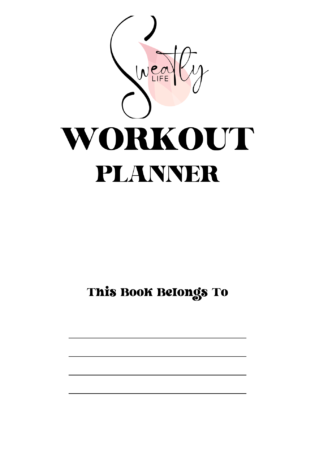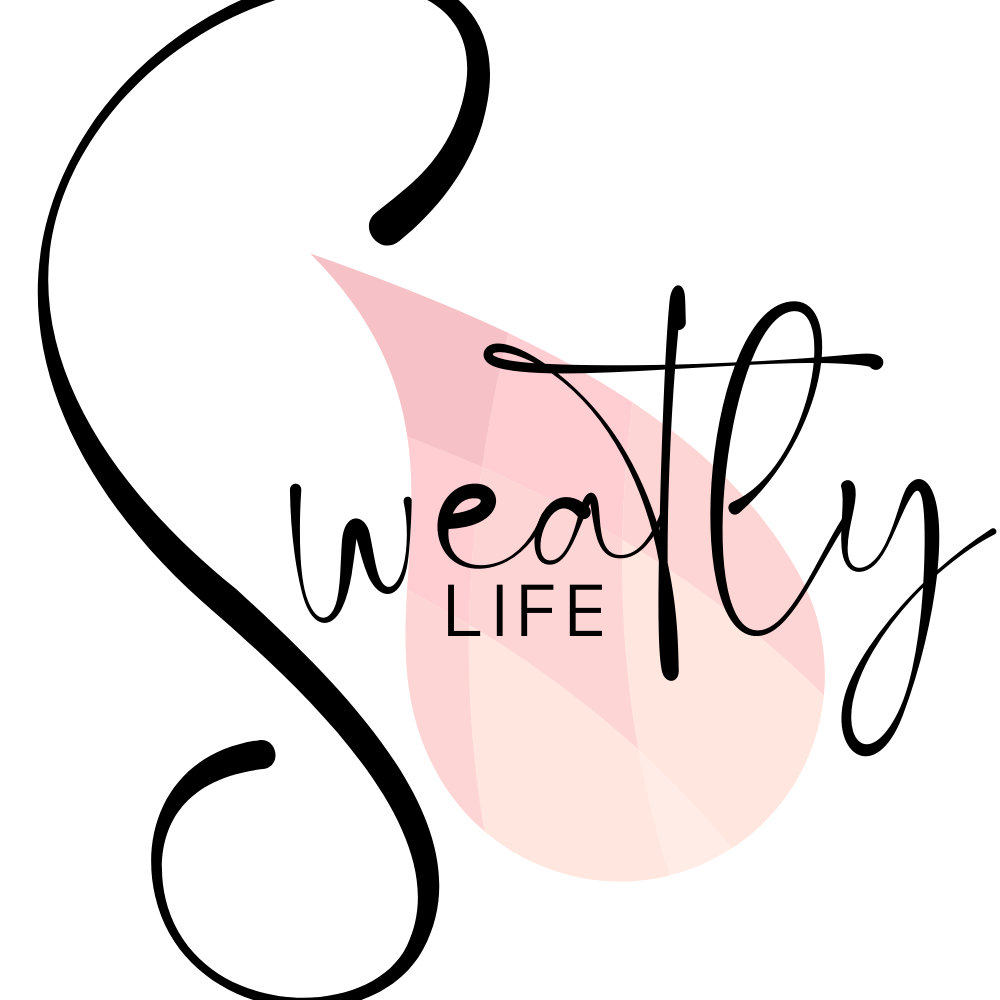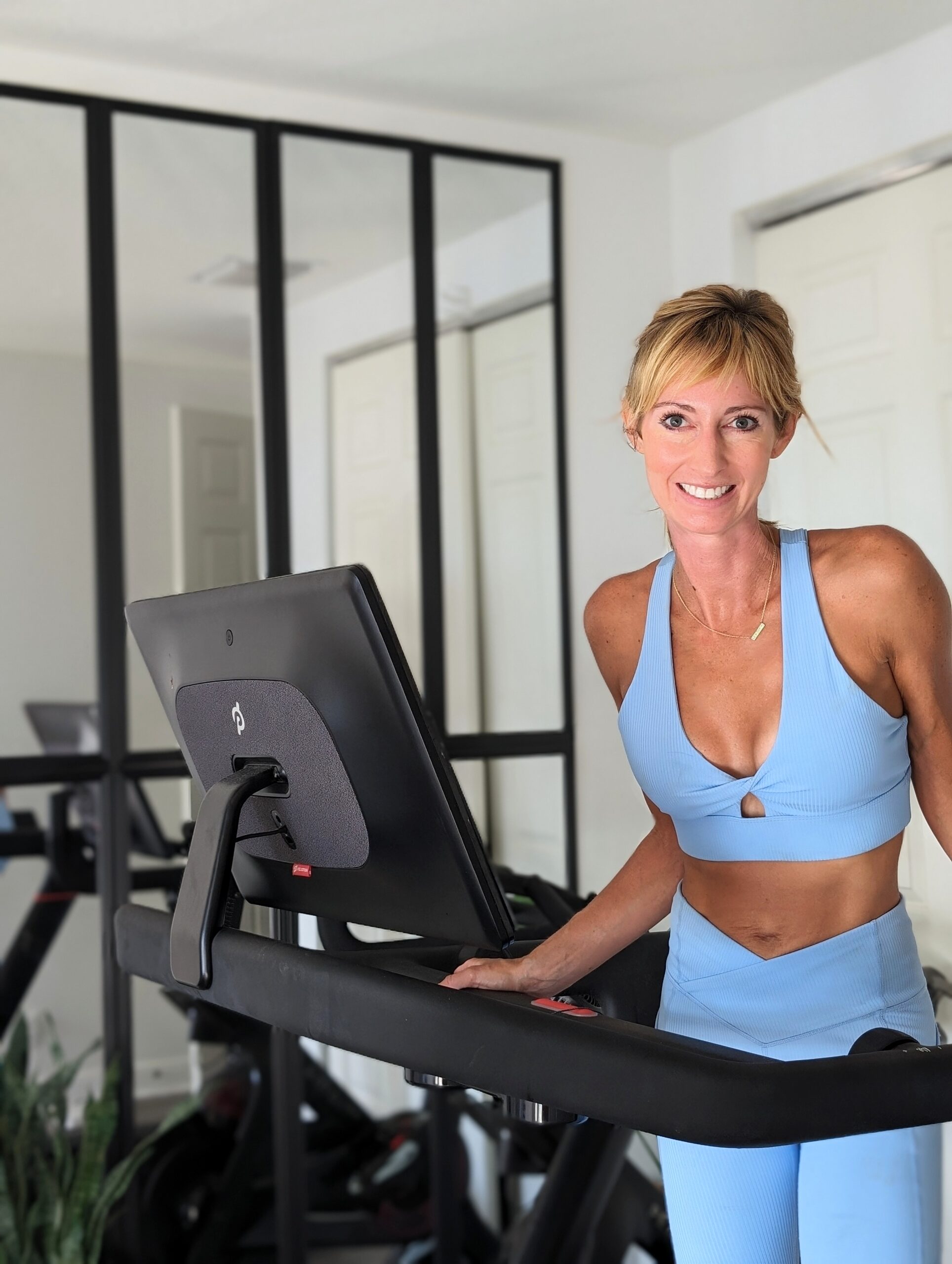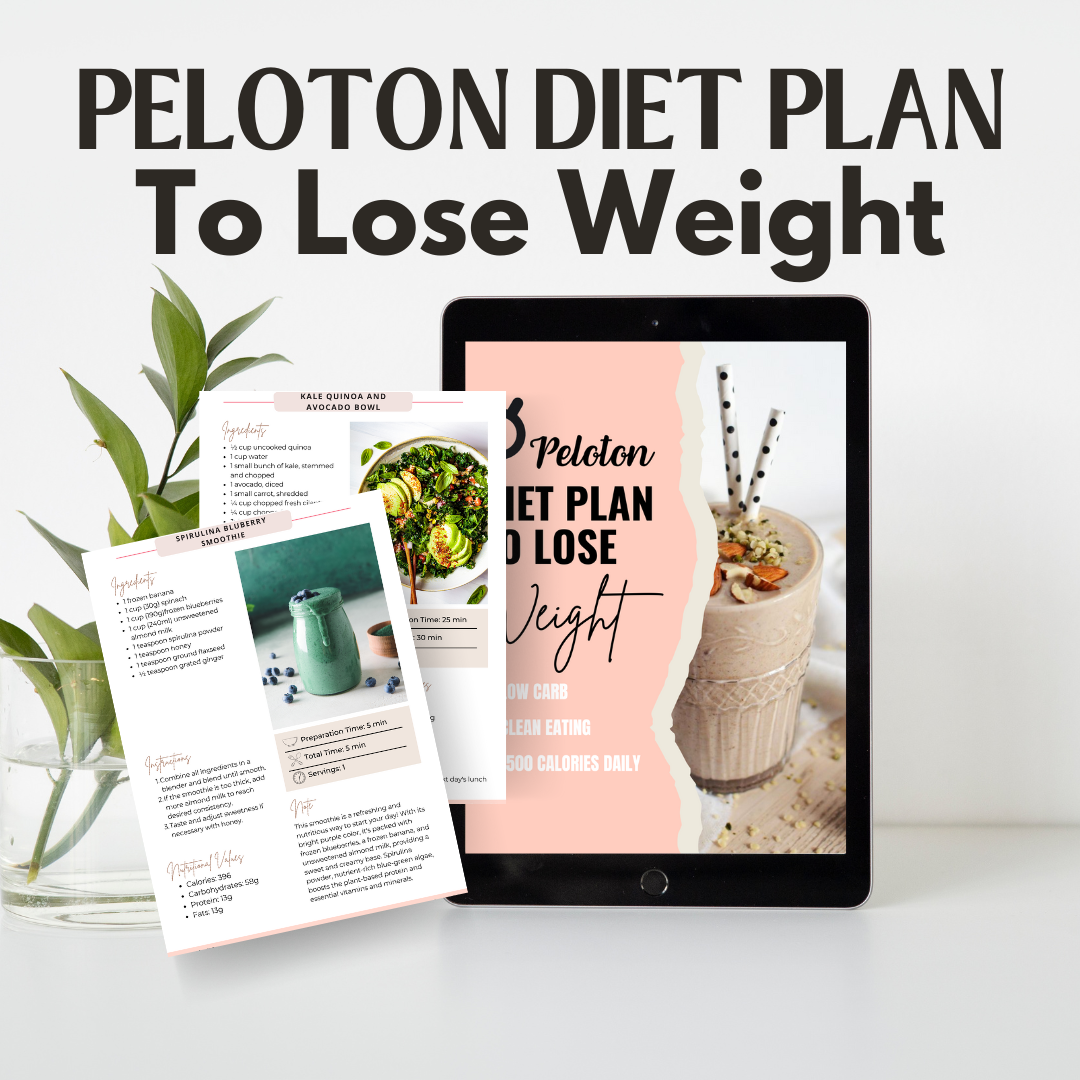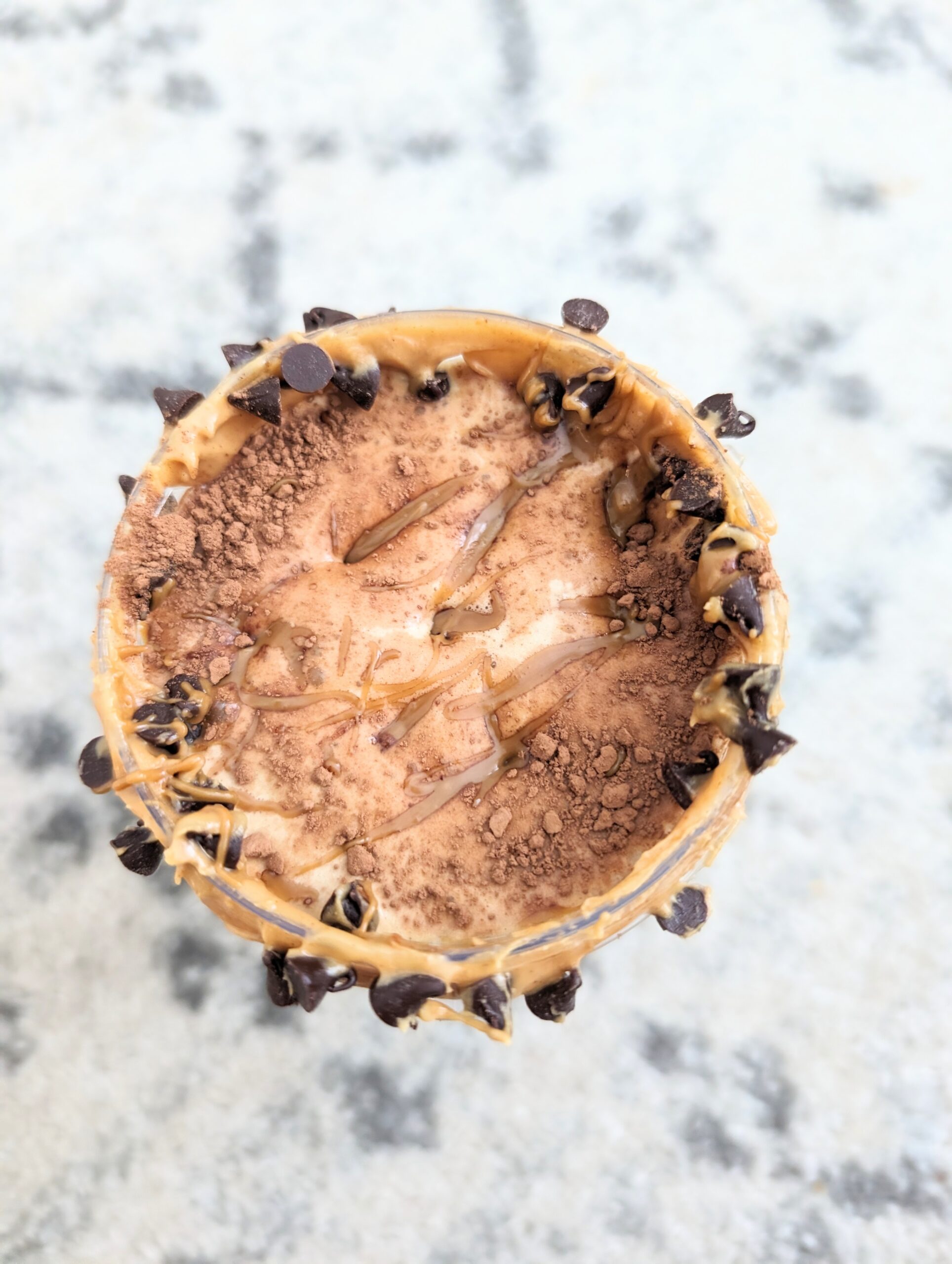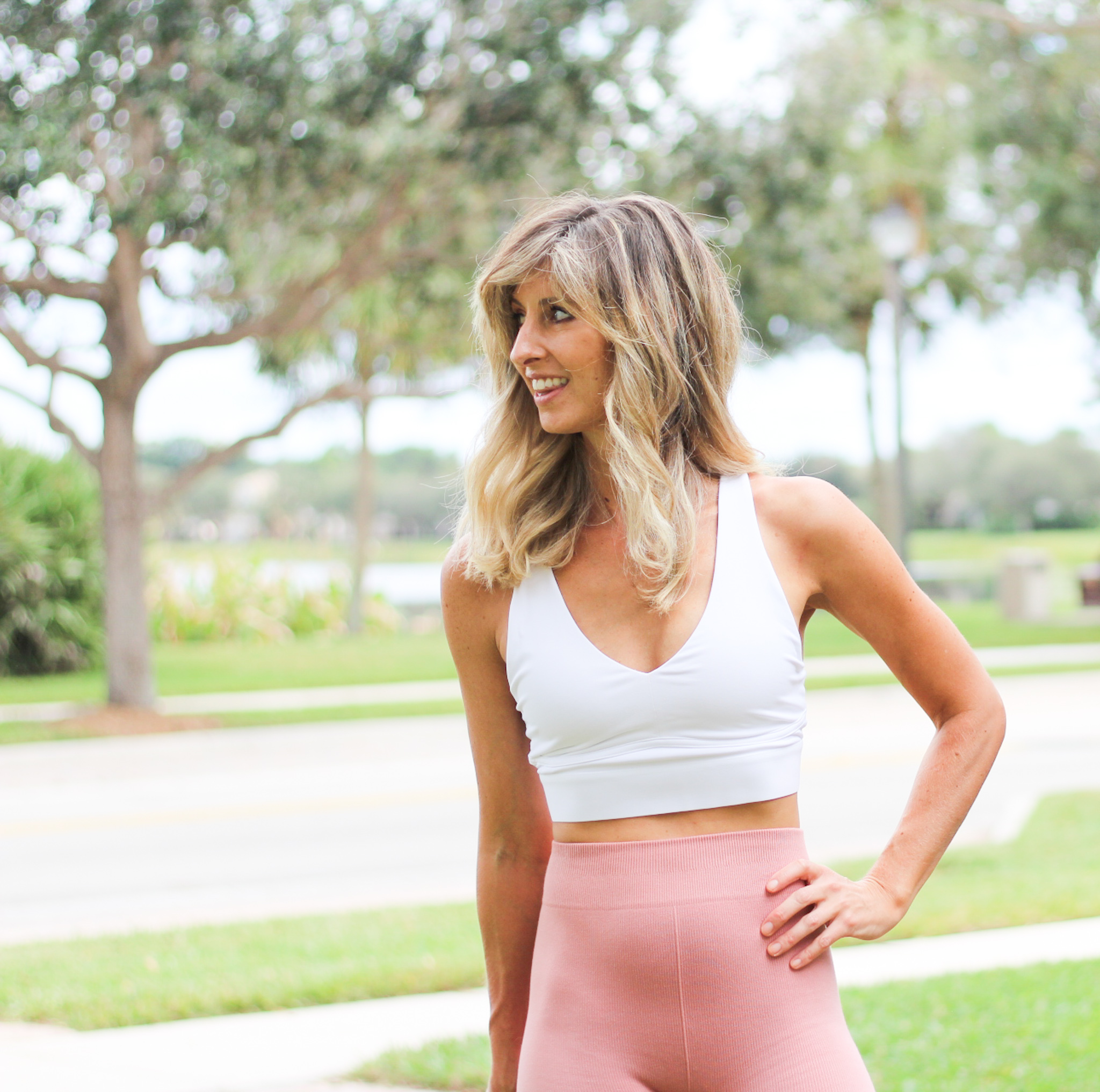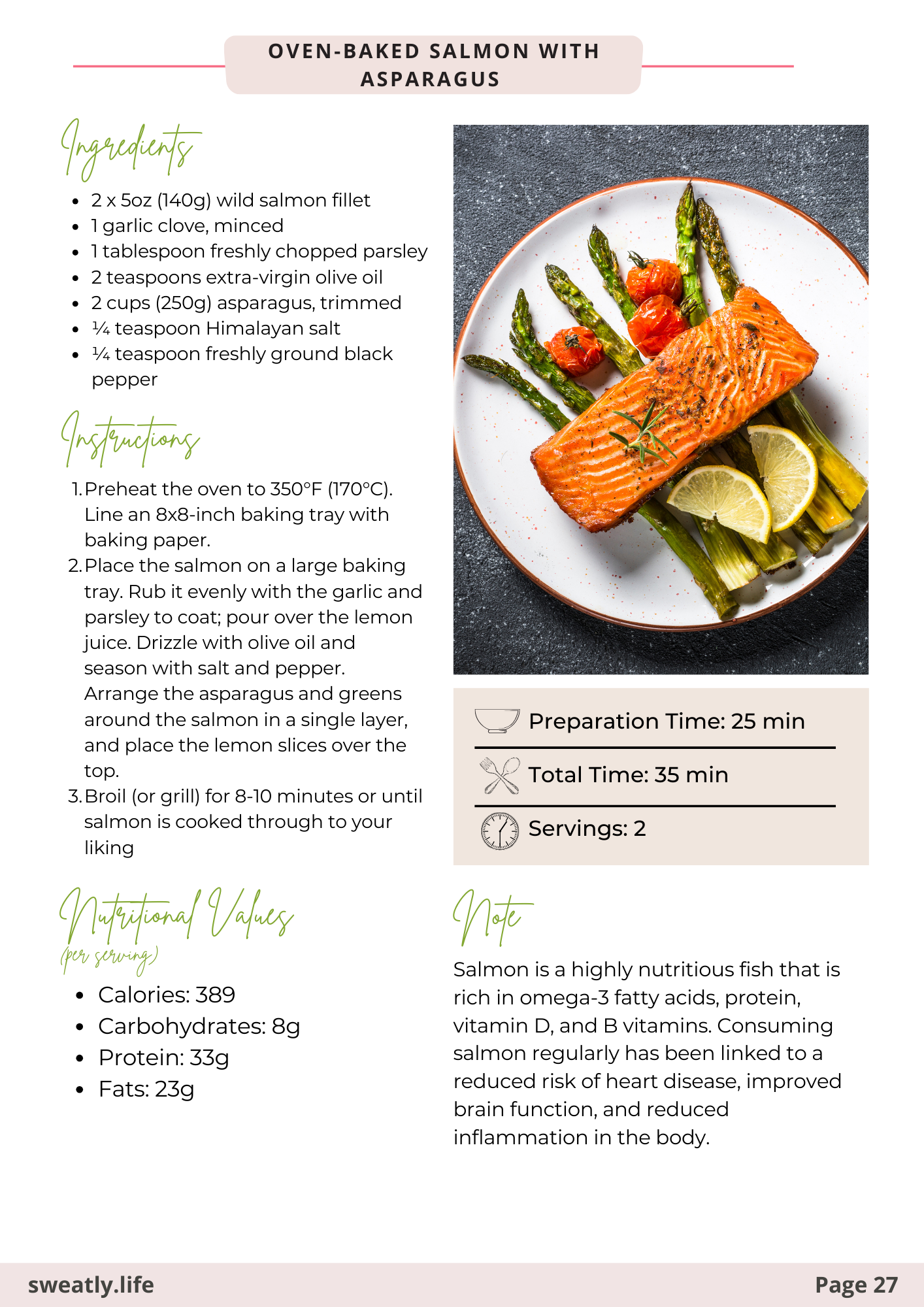
As a mom of 4, I have been gaining and losing weight for over 10 years. My oldest is 11 now, and I finally was able to lose that last 5-10lbs of baby weight from my 4th with my Peloton bike, and a very specific nutrition plan. As a certified nutrition expert, I knew exactly what I needed to do, but being over 35 this time, my body didn’t respond to my normal eating clean methods. I had to make some tweaks and changes to really get those last few pounds to fall off. I have alwasy been someone that if I just cut out cheese, sugar, bread, crackers and processed foods in general, while focusing on nutrient-dense foods, I would drop pounds. This last time around, I had to dial in my nutrition and give myself the same advice I would give any client – count your macros!
A lot of people shy away from counting macros because it can seem like there is a ton of work involved, but really the first week or so is the hardest because you do have to get used to weighing and measuring your foods. But, what happens as you go is really transformative! You start learning what a real protein serving looks like, or how many blueberries to eat for a serving. You see how small servings really are, and it trains you to be aware of everything you put in your mouth! If I am left to my own devices, I will absolutely eat all carbs and fat. I literally could live off of crackers and cheese all day, and even when I make wraps on my own, I end up loading up on the wrap, veggies and cheese, with only a little protein. I can’t tell you how important the investment is to counting macros. You can guess on your calorie count and macros, or grab my custom macro plan and nutrition guide. Either way, this is what is really going to get you results, ESPECIALLY if you are using the Peloton for your workouts.
Here is a free sample Peloton Nutrition Plan for 1 week! You can grab the full plan with recipes, macros and calories counts HERE!
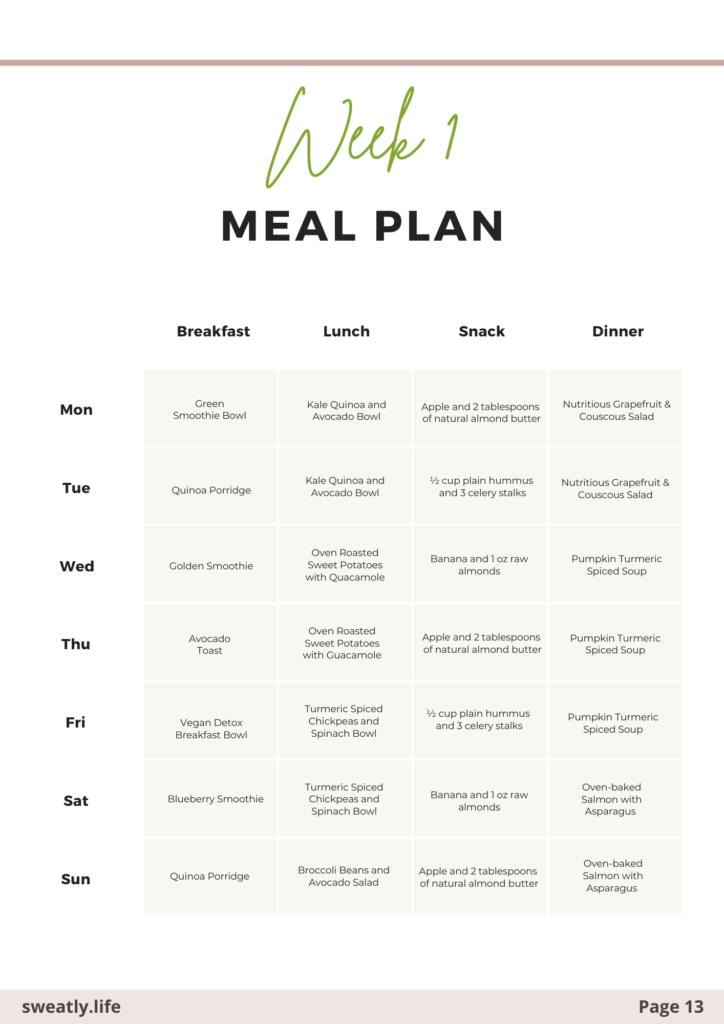
Here’s a free sample recipes too!
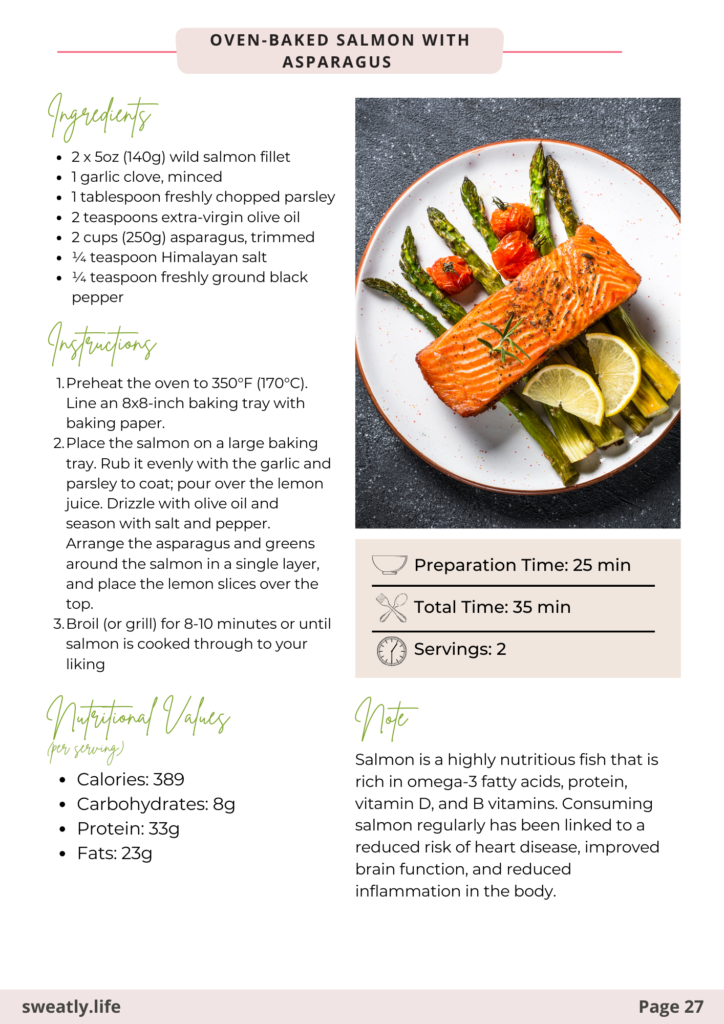
Post Ride Protein Shakes:
I highly recommend a protein shake after your rides or workout. The protein is really important to keeping your muscles happy and nourished, especially if you are wanting to burn fat, but keep your muscle mass. Getting enough protein is going to help your muscles recover and build strength, and a good protein powder will have all the amino acids you need to recover. I have a great list of my favorite post-ride protein shakes, that burn fat and build muscle! These are an essential part of my nutrition plan because I really enjoy them, and they offer so much nutrition! Protein is also not stored as fuel as easily, meaning it doesn’t get stored as fat. Protein is broken down and sent to muscles, hair, skin, nails, organs and more, so even though protein can spike blood sugar a little bit, it won’t be stored as fat. In addition to protein, it is really important to include a lot of plants, whole foods and whole grains. I am a big plant eater, and I find myself eating a lot of fruit, which really helps me feel full and crave less sugar! The fiber in fruits, vegetables and whole grains like oatmeal also help make you feel super full!
I also have a great, high-protein recipe pack you can grab which is full of healthy, fat-burning and high-protein recipes that will help you get your protein in!
Importance of Protein for Weight Loss:
As a Peloton Bike rider and Peloton Tread runner, typically people who do more cardio crave more carbs. Cardio tends to burn calories and glucose, which is why it is so great for weight loss. It burns all the extra glucose and fuel floating around in your blood stream, and the fuel that you eat that day, so your body has to tap into your fat reserves. Protein isn’t easily converted to fuel, and the amino acids go directly to building muscle, hair, skin, nails and other skeletal tissues, making it less likely to be stored as fat. By getting the right precentage of protein in your diet, you are giving your body less fuel (but still essential nutrients), while also helping your body build the muscle you are building with your Peloton workouts (espcially if you are following my strength plan in the 8-week program!).
Protein plays several important roles in weight loss and can be highly beneficial when incorporated into a balanced diet and lifestyle. Here’s how protein helps with weight loss:
- Increased Satiety: Protein has been shown to increase feelings of fullness and satiety more than carbohydrates or fats. This means that consuming protein-rich foods can help you feel fuller for longer periods, reducing overall calorie intake and potentially preventing overeating or snacking between meals.
- Higher Thermic Effect of Food (TEF): Protein has a higher thermic effect compared to carbohydrates and fats, meaning it requires more energy to digest and metabolize. This increased energy expenditure can contribute to a higher metabolic rate and greater calorie burning throughout the day.
- Preservation of Lean Muscle Mass: When you’re trying to lose weight, it’s essential to preserve muscle mass while reducing body fat. Consuming an adequate amount of protein helps support muscle protein synthesis, which is crucial for maintaining muscle mass, especially during periods of calorie restriction or weight loss.
- Improved Metabolic Rate: Protein consumption has been linked to an increase in metabolic rate, which can help enhance overall energy expenditure. A higher metabolic rate means your body burns more calories at rest, making it easier to create a calorie deficit for weight loss.
- Reduced Cravings and Mindful Eating: Including protein-rich foods in your meals and snacks can help stabilize blood sugar levels and reduce cravings for sugary or high-calorie foods. Additionally, protein-rich foods often require more chewing and digestion, promoting a slower eating pace and increased mindfulness during meals, which may lead to better portion control and reduced calorie intake.
- Maintenance of Weight Loss: Consuming adequate protein during weight loss can help prevent weight regain by supporting muscle maintenance and promoting satiety. Including protein in your diet can also help prevent the loss of metabolic rate that often occurs with weight loss, making it easier to maintain your new weight in the long term.
It’s important to note that while protein can be beneficial for weight loss, it’s just one component of a healthy diet and lifestyle. For optimal results, focus on incorporating a variety of nutrient-dense foods, staying hydrated, getting regular physical activity, and prioritizing adequate sleep and stress management. Additionally, individual protein needs may vary based on factors such as age, gender, activity level, and overall health goals.
I highly recommend a custom macro count and nutrition plan if you can! It really makes a huge difference!
Plants for Fiber and Micro Nutrients:
Plants are a really important part of nutrition plan for before and after your rides. Micro nutrients are just as important as your macro nutrients. Micro nutrients are the additional amino acids, vitamins, minerals and phytonutrients that are super high in plants. Fruits and vegetables have the highest amount of water, fiber and nutrients, making them extremely important to how your body feels and functions, as well as helping with a calorie defecit if you want to lose weight. I like to add fruits and veggies to my protein shakes, and I have a great recipe for a green smoothie from Matcha powder that has collagen and all sorts of goodness to it!
Eating clean has always helped me eat more fiber, fruits, vegetables and nutrients, and I have a big list of 30-Day Clean Eats for Effective Weight Loss
That you can check out and save some recipes to help you know what to eat!
Best Fruits to Eat Post-Peloton Ride:
=Here are five excellent fruits to eat post-workout:
- Bananas: As mentioned earlier, bananas are rich in carbohydrates and potassium, making them a perfect choice to replenish energy stores and electrolytes after a workout.
- Berries (such as blueberries, strawberries, or raspberries): Berries are packed with antioxidants, which help reduce inflammation and promote faster muscle recovery after exercise. They also provide a good source of vitamins and minerals.
- Oranges: Oranges are high in vitamin C, which can help support your immune system, especially after intense exercise. They also contain carbohydrates to replenish energy levels and hydration.
- Pineapple: Pineapple contains bromelain, an enzyme that may help reduce muscle soreness and inflammation post-workout. It’s also a good source of carbohydrates to refuel glycogen stores.
- Watermelon: Watermelon is hydrating and contains citrulline, an amino acid that may help reduce muscle soreness and improve recovery. It’s also a good source of vitamins A and C.
Veggies for Post-Peloton Ride Recovery and Fat Burn:
Vegetables play several roles in supporting fat burning and overall weight management:
- Low in Calories: Most vegetables are low in calories but high in volume and fiber. This means you can eat a larger quantity of vegetables without consuming too many calories, which can help create a calorie deficit necessary for fat loss.
- High in Fiber: Fiber-rich vegetables can help you feel fuller for longer, reducing hunger and overall calorie intake. Fiber also slows down digestion, which can help stabilize blood sugar levels and prevent spikes in insulin that may contribute to fat storage.
- Nutrient Density: Vegetables are rich in vitamins, minerals, and antioxidants, which are essential for overall health and metabolism. Certain nutrients, such as vitamin C and magnesium, play roles in fat metabolism and energy production.
- Water Content: Many vegetables have high water content, which can help keep you hydrated and feeling full. Staying hydrated is important for overall health and can also support fat loss by helping your body efficiently metabolize fat.
- Thermogenic Effect: Some vegetables, such as chili peppers, contain compounds like capsaicin that can slightly increase metabolism and promote fat burning through a process called thermogenesis.
- Alkaline Properties: Some proponents of alkaline diets suggest that consuming alkaline-forming vegetables can help optimize metabolism and promote fat burning, although scientific evidence supporting this claim is limited.
On rest days, when my body is recovering from the previous day’s resistance training or HIIT classes, I lean towards meals rich in vegetables. Sweet potatoes drizzled with olive oil and a dash of nut butter have become my go-to. They’re not just delicious; they also help maintain stable blood sugar levels, essential for muscle recovery. If you’re looking to optimize your Peloton journey, start by giving your vegetable intake a serious boost. It’s a straightforward strategy with long-term benefits for your health and performance.
You can grab my exact diet plan that I followed, with my exact Peloton workout plan that helped me lose 10lbs after my fourth baby! This is everything I ate and did to lose weight with Peloton, and all the classes I took to really burn a lot of calories and build muscle.
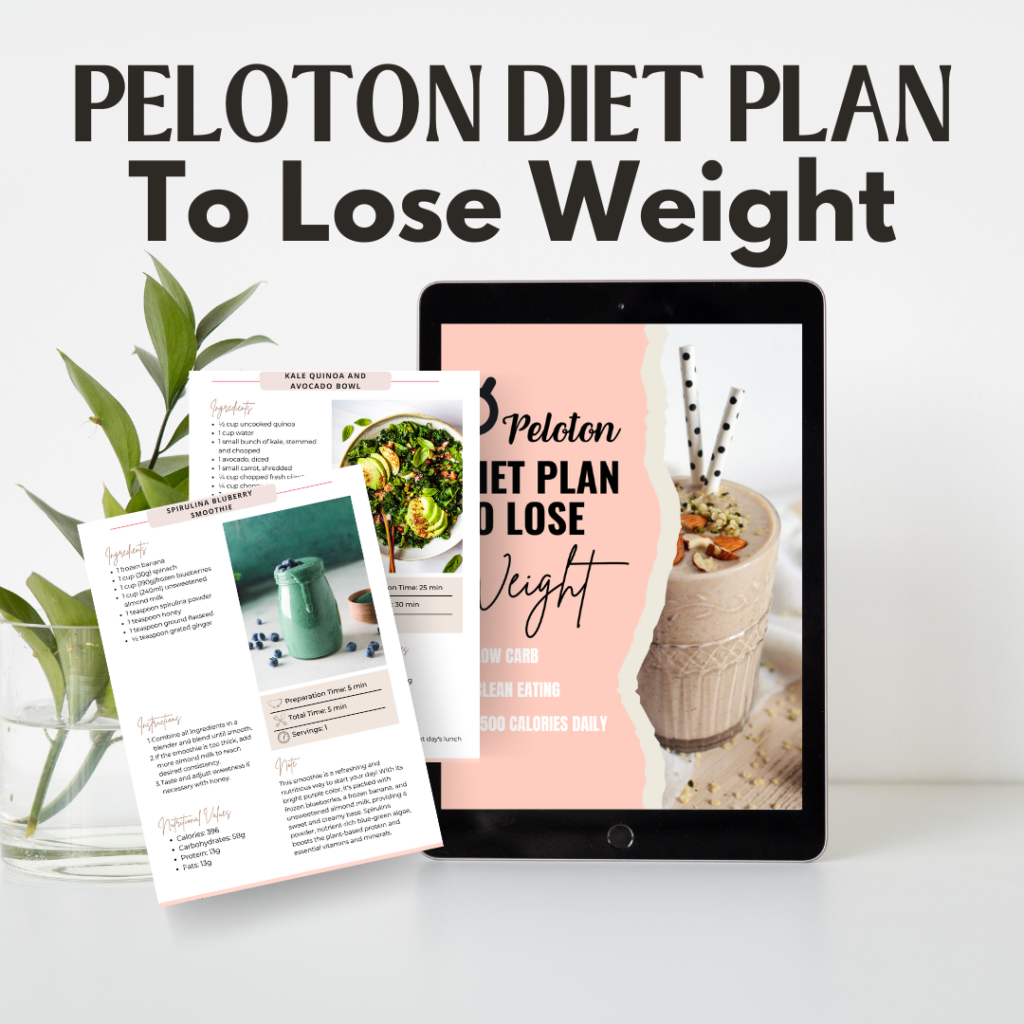
Understanding Electrolytes and Hydration
I’ve been an avid Peloton user for over a year now, combining heart-pumping cycling classes with high-intensity interval training (HIIT) workouts to achieve my fitness goals. But it wasn’t until I dialed in on my nutrition, specifically understanding electrolytes and hydration, that I really saw my performance soar. Electrolytes are crucial for anyone hitting it hard on the Peloton bike or tread, as they regulate nerve and muscle function, hydrate the body, balance blood acidity and pressure, and help rebuild damaged tissue. Without a proper balance, I found myself struggling with fatigue and cramps, no matter how much I pushed during those great workouts.
Through trial and error and heaps of research, I learned the best way to maintain this balance was not only by drinking water. I started incorporating a mix of natural sources like coconut water, banana, and sweet potatoes into my diet, alongside occasional electrolyte supplements, especially after those long, sweat-drenched sessions. This strategic approach to hydration was a game-changer, ensuring I was fully prepared to smash my personal workout goals every day.
My favorite electorlyte drink right now is Genius Hydration. I love all their products, and I use their pre-workout (caffeine free), and the BCAAs energizer drink. I love trying new supplements, and so far this whole brand I’m obssesed with!
These are the other products I’m obssesed with right now!

Pre and Post-Workout Meal Planning
I’ve been a big fan of blending strength training, HIIT workouts, and Peloton classes into my weekly exercise routine for the last year. The energy levels I’ve experienced, the muscle mass gains, and overall health improvements have been phenomenal. But, as I’ve learned, to truly optimize these workouts and meet my fitness goals, especially when aiming for fat loss or muscle protein synthesis, it’s crucial to nail down the pre and post-workout meal planning. Let me share some strategies that have worked wonders for me.
- Pre-Workout: When I am working on losing weight, I typically do my workouts fasted, or I take the Genius Pre-Workout right before. Intermittent fasting works really well for me, so if you can try to workout fasted, I highly recommend it for weight loss. This works really well, and it gives me a good boost before I run or cycle. I also like this because then I can save my coffee for after my workout, and I think of it as a good reward!
- Post-Workout: After a great Peloton class or strength workout, I like a really good protein shake! My favorite right now is a frappucino-style protein shake with Every Day Dose Mushroom Coffee and a chocolate Whey Protein Powder. I LOVE this combination, and I am literally drinking it every morning post-workout.

Incorporating Supplements Wisely
As a big fan of both the Peloton app and bike, I’ve realized that juggling between HIIT workouts, strength training, and those long runs on the Peloton tread can seriously sap your energy levels. It makes you wonder if you’re getting enough protein and nutrients solely from meal plans. This is where supplements, especially protein powder, play a significant role. I’ve learned that incorporating these into my diet is not just about convenience; it’s about ensuring muscle protein synthesis and recovery, especially after a great workout.
For me, the best way to use supplements is by blending them with whole foods. Adding a scoop of protein powder to a green smoothie first thing in the morning or after a great Peloton class boosts my protein intake without much fuss. But remember, supplements are just that—a supplement to, not a replacement for, a healthy diet full of whole grains, healthy fats, and enough protein. Consulting a registered dietitian helped me tailor my supplement use, aligning it perfectly with my fitness goals and the intensity of my Peloton workouts. Even with my protein shakes, I make sure to have a lot of whole foods, or add them to my shakes for my post-workout meals. I like a quick shake right after my workout, then a little later I do a larger meal with lots of fruits, vegetables and lean protein. You can get everything I eat in thie eating plan!
Customizing Your Nutrition Plan: Custom Macro Plan
Calories and nutrition are the cornerstone to your weight with Peloton. Even if you do all your workouts, if you don’t have your nutrition just right, your body won’t let go of fat. If you don’t eat enough nutrients, your body will just want to hold on to stored nutrients, and it won’t let go of fat. By counting macros, you can keep your calorie count a little higher and ensure your body is getting enough nutrients, while still eating just a little less, so your body will use the negative fuel to burn fat. It is a tricky balance, and you might be a little hungry at first, but being hungry is not going to kill you! It means you are eating less and your body is using fat! Once you get through just a few days, your body adjusts really quickly.
Counting macros makes sure that your calorie deficit provides the right amount of nutrients. If you eat 1200 calories of your favorite cupcakes every day, you might lose a little weight, but eating just 4-5 cupcakes the whole day will leave you feeling terrible and hungry. If you eat 1200 calories of fruits, vegetables and lean protein, you will feel like you are eating a lot, and all the fiber and protein will make you feel super full!
When you add in my Peloton workout routine on top of eating the right amount of calories and macros for your body, you will literally see fat fall off your body fast. It is crazy how quickly your body responds when you give it the right fuel and the right amount of nutrients!
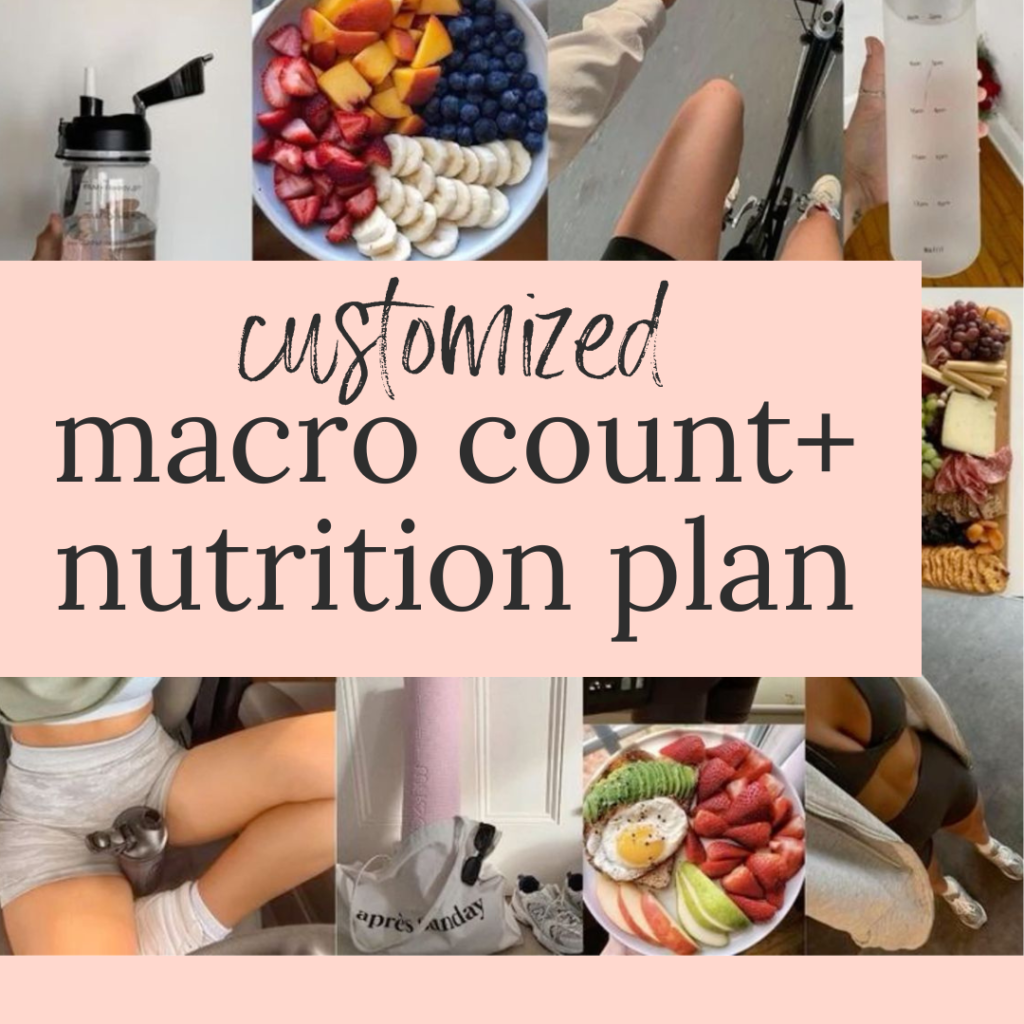
-
Sale!
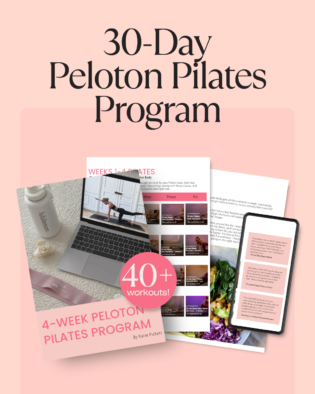
4-Week Peloton Pilates Workout Plan
$12.99Original price was: $12.99.$8.99Current price is: $8.99. -
Sale!
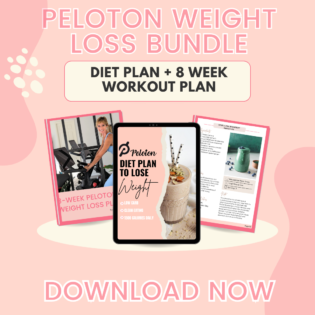
Peloton Diet Plan To Lose Weight + 8 Week Peloton Workout Plan Cardio + Strength
$27.99Original price was: $27.99.$22.99Current price is: $22.99. -
Sale!
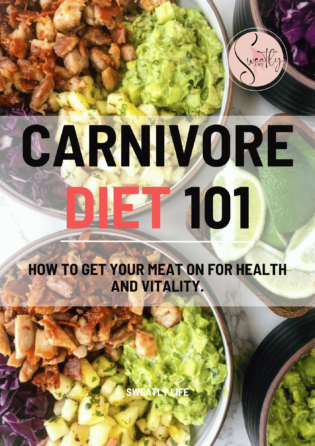
Canivore Diet Plan 101: Get Started
$7.99Original price was: $7.99.$4.99Current price is: $4.99. -
